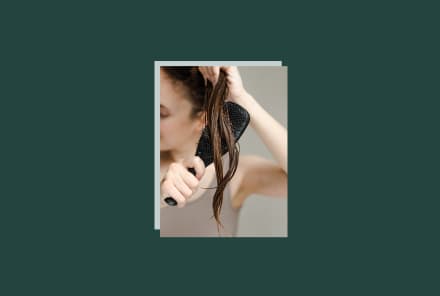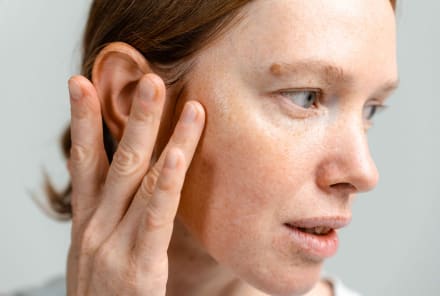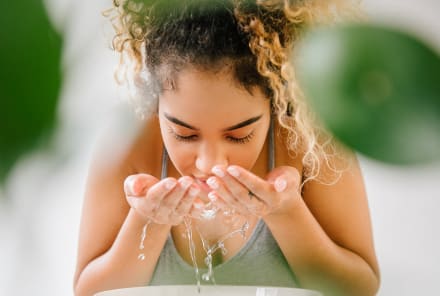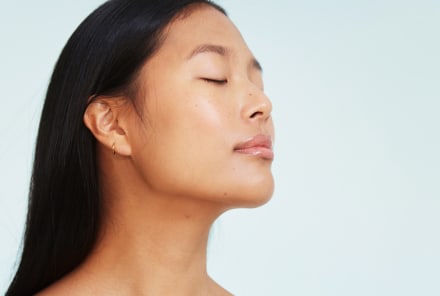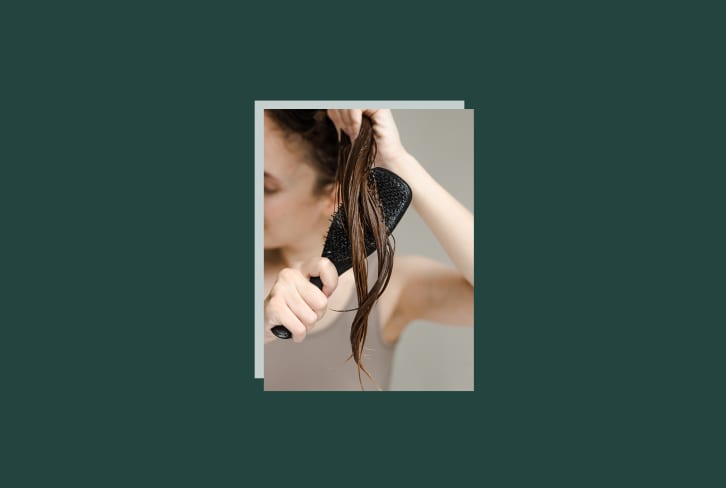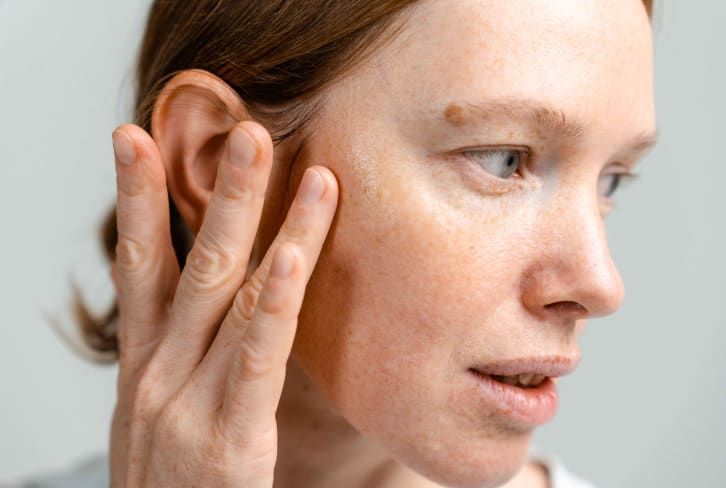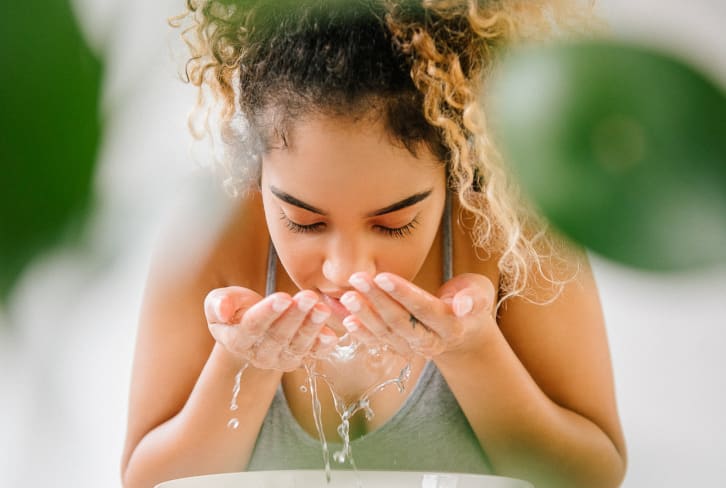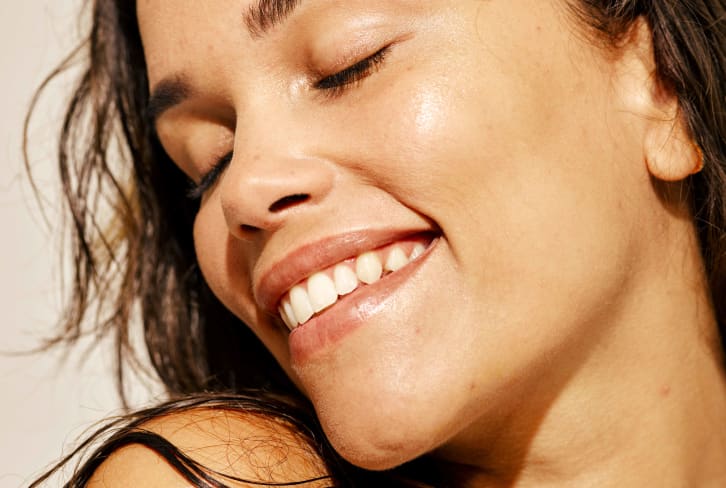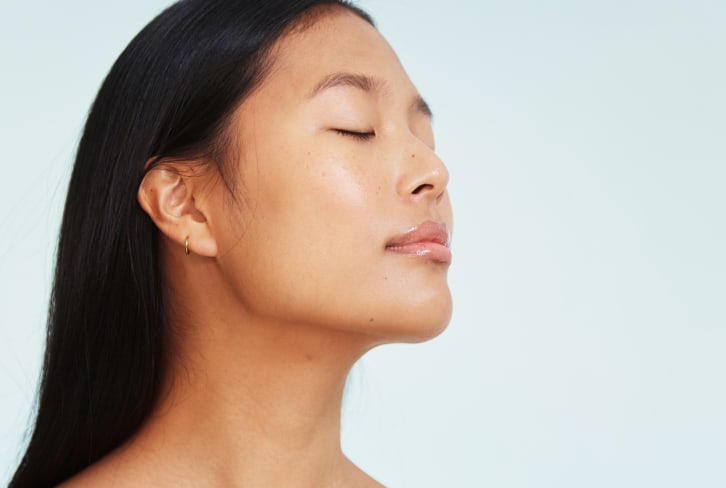Advertisement
What To Know About Possible Benzene Contamination In Benzoyl Peroxide Beauty Products

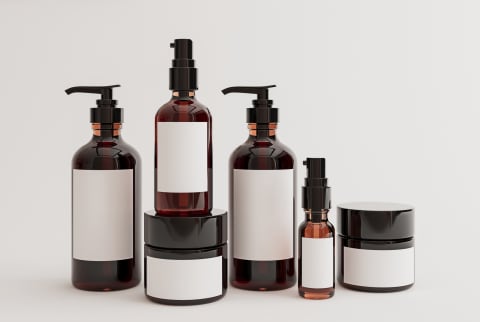
If you're a beauty enthusiast, you've likely seen some pretty startling news percolate in your news feed on social media: A recent report from an independent lab found "unacceptably" high levels of the carcinogen benzene in a variety of acne products. The news is all the more reason to educate yourself on what exactly this means for you and your skin health—especially if you use acne topicals that contain benzoyl peroxide.
Here's how to make sense of the report.
What is benzene?
This week, an independent lab, Valisure LLC, requested a petition from the U.S. Food and Drug Administration (FDA) to recall a group of acne treatment products that could contain a known human carcinogen1, benzene. Benzene is an aromatic hydrocarbon that's created from both natural and synthetic sources. In nature, it's created from sources like wildfires. But it's also used in the plastic production process and crude oil.
The skin care products in question contain benzoyl peroxide (BPO), a common ingredient used to treat acne. It can be found in serums, creams, and cleansers used on both the face and the body for concerns like chest and back acne.
The lab found that 94 of the 175 benzoyl peroxide acne products contained benzene and at levels well above the level deemed safe by the FDA previously.
They also subjected a handful of the products to an incubation temperature of 122 degrees Fahrenheit and noted a dramatic increase in benzene levels as a result, deeming those products fairly unstable.
This further highlights that stability in beauty products is incredibly important. While your products travel from the factory to your door, they can be exposed to high temperatures, air, and even sometimes sunlight depending on the packaging. When this happens, the product should be able to remain safe and beneficial to the skin. (For context: This is why notoriously unstable products like retinoids are directed to be used at night and often come in airtight, lights-out containers and are directed to be stored in a cool environment.)
This isn't to say all benzoyl peroxide products are unstable, but these findings indicate that some may be when exposed to very high temperatures. And given that the ingredient can degrade into benzene, this gives folks pause.
Benzene evaporates easily and quickly into air. This means it can be inhaled and is especially likely to be inhaled in some capacity when used in high-heat environments like the shower (as benzoyl peroxide body washes often are). Hence, why the lab is urging a recall.
The laboratory's petition draws parallels with how the FDA has addressed recall issues in the drug and cosmetic sectors. It advocates for specific actions, including recalling and suspending products containing benzoyl peroxide (BPO), launching investigations, sharing public information, and revising guidance regarding benzene concentration.
Additionally, the petition proposes collaboration with the Environmental Protection Agency (EPA)2, endorsing independent drug testing programs, and issuing regulations for robust chemical testing and verification of pharmaceuticals, even before formal regulations are established.
Has this happened before?
Over the last few years, there have been a few notable recalls in the beauty industry. For example, there were two big recalls of dry shampoos in recent memory: In 2022, Unilever recalled 19 dry shampoos3 because of a possible benzene contamination as well. In 2021, Procter & Gamble recalled 32 dry hair products4 because of a similar contamination issue.
Sprayable sunscreen is another hot topic: Several major beauty conglomerates have issued recalls due to contamination, from Banana Boat, Unilever, P&G, and Johnson & Johnson. Both instances were triggered by independent testing from the same lab that tested the BPO products.
It's very important to note that both of these recalls were voluntary. The companies decided to do so out of an abundance of caution. Additional independent tests were done, some of which contested the original findings.
Up until recently, the FDA didn't have the federal authority to recall cosmetics products themselves. But just last year, a new directive was announced called the Modernization of Cosmetics Regulations Act (MoCRA) changed that—which could be why there's more attention on benzene now than before and more hope for FDA action.
RELATED READ: What You Need To Know About MoCRA & The Beauty Industry
What should you do?
This doesn't mean that every single product containing benzoyl peroxide can lead to dangerous levels of benzene, but it's worth considering next time you're shopping for acne care products—at least until there is more information or there are more solid regulations in place to protect your health.
Not to mention, the world of acne care is advancing at a rapid rate, far beyond BPO-only treatments—so if this news makes you particularly uneasy, you can use other ingredients. If you're struggling with occasional or mild acne, look to exfoliants like salicylic acid (which also comes in serums, creams, and cleansers for the face and body) to help unclog pores and slough off dead skin. You can also try out the acne and aging hybrid ingredient superstar retinol.
For more severe cases of acne, or if you want some guidance on which BPO-free products you should try, ask your dermatologist. It's better to be safe than sorry, and the best person to get personal advice for your needs is your medical professional.
The takeaway
An independent lab recently asked the FDA to recall benzene-containing acne products. This comes from a large test on benzoyl peroxide acne care products that were shown to have higher levels of benzene than deemed safe by the FDA, thus warranting a recall and greater beauty industry reevaluation of the ingredient. Luckily, there are plenty more options for topical acne care available in the meantime—here, some of our top picks, all BPO-free.
4 Sources
- https://pubmed.ncbi.nlm.nih.gov/31769947/
- https://www.epa.gov/
- https://www.fda.gov/safety/recalls-market-withdrawals-safety-alerts/unilever-issues-voluntary-us-recall-select-dry-shampoos-due-potential-presence-benzene
- https://www.fda.gov/safety/recalls-market-withdrawals-safety-alerts/pg-issues-voluntary-recall-aerosol-dry-conditioner-spray-products-and-aerosol-dry-shampoo-spray
Watch Next
Enjoy some of our favorite clips from classes
Enjoy some of our favorite clips from classes
What Is Meditation?
Mindfulness/Spirituality | Light Watkins
Box Breathing
Mindfulness/Spirituality | Gwen Dittmar
What Breathwork Can Address
Mindfulness/Spirituality | Gwen Dittmar
The 8 Limbs of Yoga - What is Asana?
Yoga | Caley Alyssa
Two Standing Postures to Open Up Tight Hips
Yoga | Caley Alyssa
How Plants Can Optimize Athletic Performance
Nutrition | Rich Roll
What to Eat Before a Workout
Nutrition | Rich Roll
How Ayurveda Helps Us Navigate Modern Life
Nutrition | Sahara Rose
Messages About Love & Relationships
Love & Relationships | Esther Perel
Love Languages
Love & Relationships | Esther Perel
